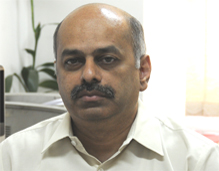The Bomb and the Bird

In the backdrop of President Bush’s successful visit to India and the finalizing of the ‘nuclear energy’ deal minus the US Congress approval, many opinion-makers are coming out with bizarre theories about this deal either in its favour or against it and appear to be making a few mistakes knowingly.
In contrast, intellectual debate is entirely missing on bird flu and its future, particularly when the spread of bird flu has already started in the country. This clearly indicates the triviality of intellectual thinking, be it among academics, scientists or the media.
The concern is this: why are scientists talking only about nuclear issues seriously, while other than routine media briefs by some doctors nothing significant is being discussed on the status of preparedness to handle the threat from bird flu? Is it that the media fails to understand the gravity of the plausible situation if human-to-human transmission of the disease starts, and is currently only interested in counting the dead chickens! Probably, bird flu in particular and agriculture in general do not have the requisite ‘sex appeal’ the nuclear deal has, and hence the lack of analytical focus.
Interestingly, the texts of the Indo-US Joint Statement issued on July 18, 2005 and March 2, 2006 make clear mention of a US-India Knowledge Initiative on Agriculture focused on promoting teaching, research, service and commercial linkages. But the media is totally devoid of any news on that front, barring an odd report talking about Indian Mango reaching Uncle Sam’s country. Particularly for a country like India, agriculture is one of the most important sectors for social, economic and political stability. But little attention is being paid to revolutionalise this field, and lack of significant debate on these issues is bound to harm the country in the long run. Over the years, many times the Indian agro-scientific community has essentially been seen only haggling over issues related to Genetically Modified (GM) food. The other reason for agro-science not coming to the forefront could be the Brahminical treatment given to nuclear scientists in this country. Many of these scientists have shown an ability to become political scientists. But the poor agro-scientist remains mostly in the background, and in the farms.
On issues related to security and technology, the ‘thinking community’ just appears to be refusing to think out of the box. The strategic community in the country has become so obsessed with Pakistan, nuclear weapons and terrorism, that it fails to appreciate other facets of security, particularly human security. Human security essentially deals with protecting individuals and communities from any form of violence (civil war, genocide, etc.) and even a natural disaster could be defined as violence ‘by nature’. It needs to be understood that secure States do not automatically mean secure people. National security may deal with protecting citizens from foreign attack, but does not guarantee protection in the holistic sense of the term.
The chaos in handling bird flu cases in rural Maharashtra is an indication of how little we understand the complexities of human security. Luckily, the threat is still at a nascent stage, but are we prepared to handle fallouts of any human-to-human transmission? Here, it needs to be understood that under such a scenario challenges would go much beyond providing simple medical treatment. Are we as a state prepared to handle the political and social fallouts of any spread of infectious diseases? A simple indicator to such fallouts could be the case of copying by students in Nawapur in board examinations. Since the police force was deployed to handle the situation arising due to bird flu, it could not be made available at examination centres. The Katrina hurricane disaster in the US has shown to the entire world how anti-social elements take advantage of such circumstances.
There also appears to be lack of interest in carrying out a “cost-benefit analysis” of money spent on security-related issues. Today, in India, the issue of national security has become more of a ‘holy cow’ and is unduly getting associated with ‘nationalism’. Though a substantial amount of the budget is being spent on ‘defence,’ this is being done without undertaking proper threat and risk assessments. Issues like ‘is nuclear energy the only viable, cheap and clean option’ are not even getting discussed at the appropriate fora. A simple comparison of deaths caused by terrorism, investments made in counter-terrorism-related activities and human and economic losses incurred during recent natural disasters in the country indicates that the loss due to disasters surpasses investments in counter-terrorism.
Over the years the entire security apparatus of the state has come to be been seen as more reactive than proactive, probably because we ourselves are not too sure about what we should guard against. As a nation we have a responsibility to make sure that the natural world continues to survive for our future generations and to do so, if we have to kill a bird, we better kill a bird and if we have to kill a bomb, we better kill a bomb.








